#Koreanlies
Text
"Phoenix Crown(鳳冠)" it's the queen's crown unique to China.

Korea’s previous dynasties are all dependent countries of China, so it’s impossible to use everything about the Chinese empress and emperor.
The rank of the Korean royal family is duke, so the queen of Korea cannot have a phoenix crown.
South Korea also has no cultural relics to prove that South Korea has a history of phoenix crests.
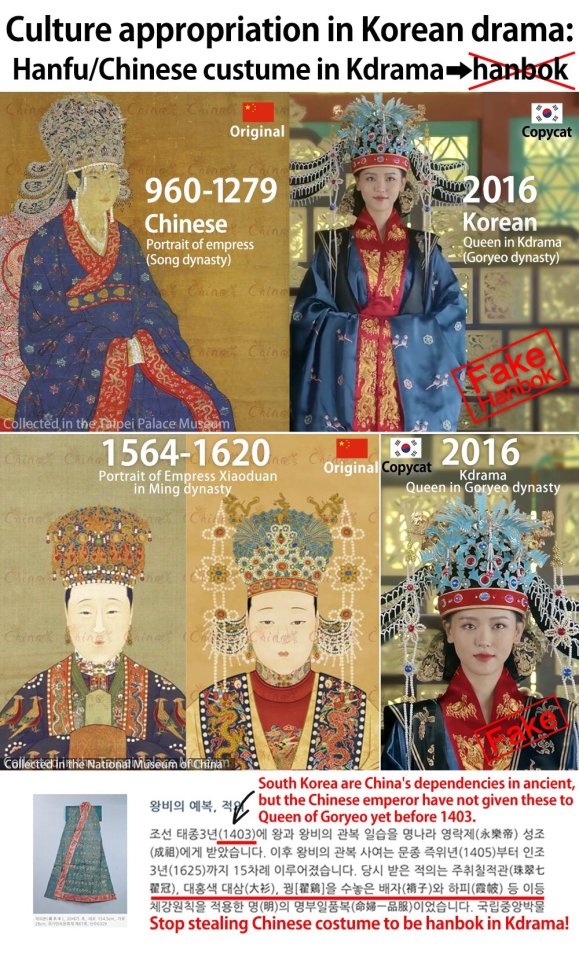
The dress of the queen of South Korea is different from that of China.
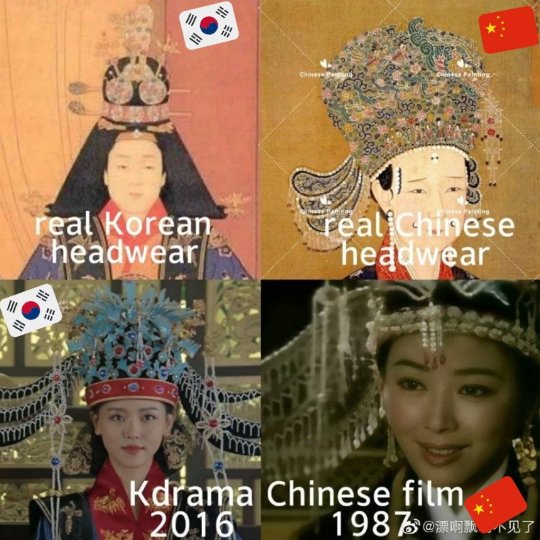

Obviously, the crown of the Queen of South Korea is different from that of China.
#Chinese drama#Chinese#Cdrama#C-drama#China#Korean#Korean drama#Kdrama#K-drama#chineseculture#Chinese history#Cultural appropriation#Copycat#Plagiarism#copy#Chinese style#Phoenix Crown#Koreanlies#Fake hanbok#Real Hanfu#Hanfu#Chinese Hanfu#Chinese film#Chinese Movie#Korean Movie#CMovie#KMovie#C-Movie#K-Movie
11 notes
·
View notes
Text
Happy Birthday Baekhyun!

Happy Birthday to the only person who gets just as wild as our V. I'm still crying over Scarlet Heart: Reyo btw
#although i did just notice chan in the bg#lmaooo#baekhyun#exo#exo cbx#v#taehyung#bts#i just realised something about both their fates in historical dramas#kdrama producers know what will get our tears rolling#scarlet heart: reyo#gif not mine#credit to koreanly
5 notes
·
View notes
Note
what’s the difference between 있어 and 있지 ?
있어 is the plain way of saying "there is [noun]" or "I have [noun]." The -지 comes from the ending -지(요), which can also be shortened to -죠. 있지, depending on the context, is a little different. For example, if you say 펜이 있어? it means “do you have a pen?” 펜이 있지? on the other hand, has the nuance of "you have a pen, right?" It's useful for asking questions of confirmation like that.
Another example with a different verb is 숙제를 했어? meaning “did you do the homework?” 숙제를 했죠? however, means “you did the homework, right?” You’re confirming with the person you’re speaking to that they did something.
You might also hear the -지(요) ending when people ask themselves questions. For instance, if you lose your keys, you could say 열쇠가 어디 있지? meaning "where are my keys?"
-지(요) can also be used to kinda retrieve information that you forgot, according to the Korean Wiki Project. For example, 그 가게가 어디지? means “where’s that store?” but gives the nuance of “where’s that store again?” as if you are trying to remember something you previously knew or want the person you’re asking to remind you.
-지(요) can also be used to end regular sentences too! Look at this example from the Korean Wiki Project:
A: 내일 갈 거야? = Are you going tomorrow?
B: 갈 거지. = Of course I’m going.
Here, -지(요) gives the nuance of “of course” or that what you’re saying is a given or kinda obvious -- that sorta thing.
I hope that was helpful! -지(요) is a very versatile ending with a few different nuances, so it’s def worth knowing! For more info about this, check out my lesson about it and the other resources below! 화이팅!
Level 6 / Lesson 8: -죠
Korean Wiki Project: 지요
Koreanly: 죠/ 지요
#korean#korean language#learn korean#study korean#korean langblr#hangul#langblr#learning korean#studying korean#learn languages
87 notes
·
View notes
Text
님이 오시는지
한국 가곡 - 조성은 작곡, 박문호 작시
물망초 꿈꾸는 강가를 돌아
달빛 먼 길 임이 오시는가
갈숲에 이는 바람 그대 발자취일까
흐르는 물소리 임의 노래일까
내 맘은 외로와 한없이 떠돌고
새벽이 오려는지 바람만 차오네
백합화 꿈꾸는 들녘을 지나
달빛 먼 길 내 임이 오시는가
풀물이 배인 치마 끌고 오는 소리
꽃향기 헤치고 임이 오시는가
내 맘은 떨리어 끝없이 헤매고
새벽이 오려는지 바람이 이네
Waiting
Korean lied
Composed by Cho Seong Eun
Lyric wrote by Park Moon Ho
Around the riverside, where the forget-me-nots dream
Will you come through the moonlit road?
Is the wind in the reed forest your trace of steps?
Is the sound of flowing water your song?
My loneliness wanders forever.
Wind is getting cold, as if the dawn is about to come.
Through the field where lilies dream
Will you come through the moonlight path?
Pull of a skirt tinged with grass resonates
Are you coming, through the scents of flowers?
My fluttering heart wanders endlessly.
The wind is blowing, as if the dawn is about to come.
youtube
Pusan catholic choir
#poetry#poetrytranslation#translation#translatedpoem#lied#lyrictranslation#korean#koreanlied#music#classic#lyric#lyrics
0 notes
Text
How I study Korean
I don't attend any language school for Korean but I can't take all the credit either because I have resources which help me, a lot.
Learning Spanish for two months helped me understand the key points about learning a foreign language. I started with the basics, 한글.
Reading & Writing: I made sure I knew the correct stroke order and pronunciation of the 한글 characters. I wrote 한글 everyday for about a month while reading aloud the character I was writing. Just like in kindergarten, when I was learning my first language, English.
I used Duolingo to practice the 한글 characters. Repetition is the key.
With Korean, the new part was - syllable blocks.
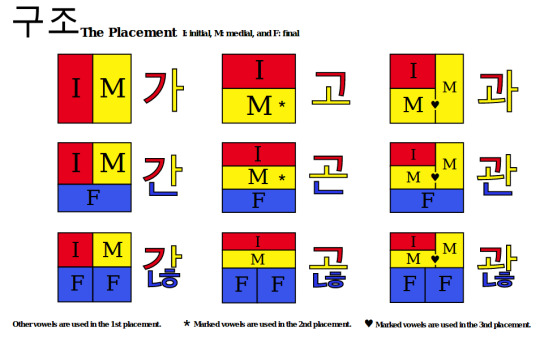
Even Bengali or Hindi didn't have them. So I dived into the concept of syllable blocks. I wrote words which were one or two syllables long in order to get used to the writing system.
I wasn't happy about my handwriting though. It looked very blocky and un-native-like. So I practiced writing Korean like a native.
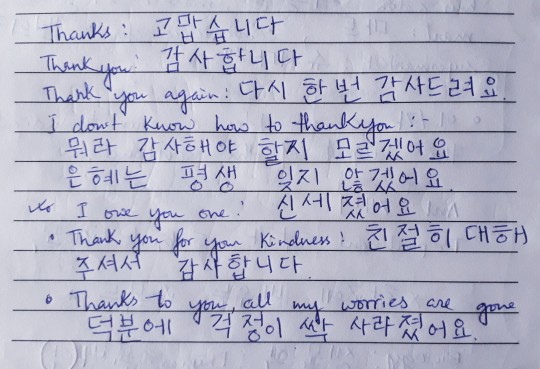
My initial handwriting
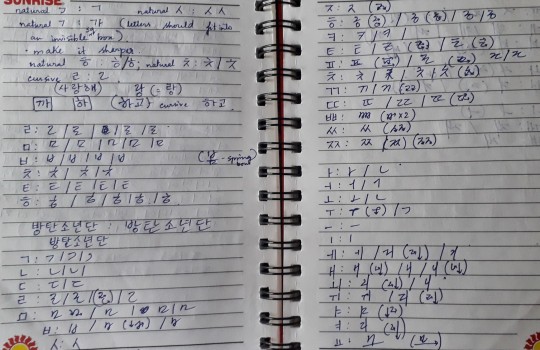
Practicing how to write like a native
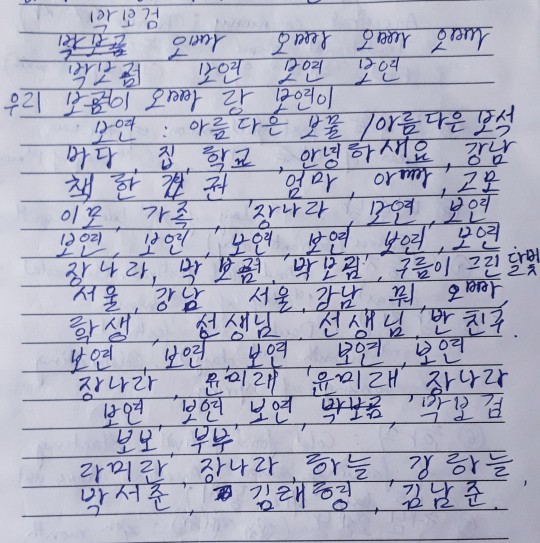
During the transition I might've been trying too hard. (and that's a lot of 박보검 and 오빠)
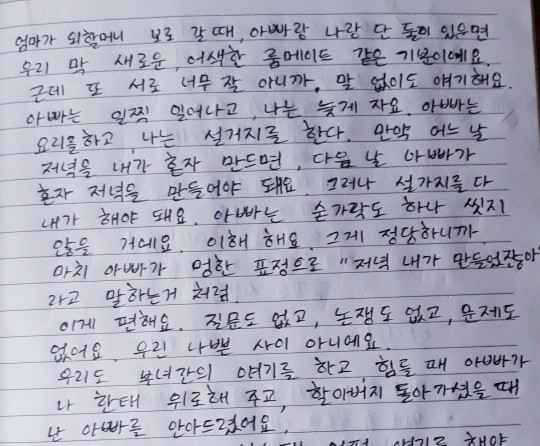
This is my steady Korean handwriting. It's not pretty but it's legit. (None of my handwritings are pretty)
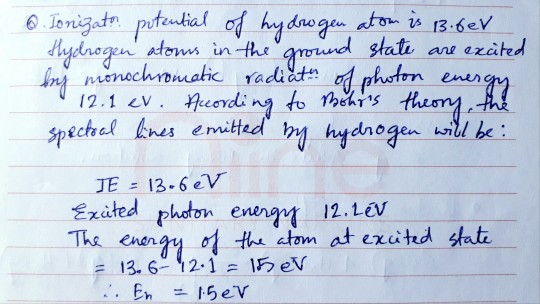
This is my English handwriting and I've been writing English ever since I was a baby. I just don't have very good penmanship, I guess. (this is actually a random chemistry question. All I write these days are science stuff for NEET, so.)
Pronunciation: Now that I knew how to read and write 한글, I moved on to the phonetics. Here's an order I follow and I think you should too, when learning a language from scratch.

Gotta start from the core
Vowels are cool, but consonants? Man, did I struggle. Voiced, unvoiced, unaspirated, aspirated, tense... WTF? I got through it.
Next in line for Korean pronunciation were 받침 and nasal assimilation/ nasalization.
Speech levels: English doesn't have speech levels but Bengali and Hindi do, so it was comparatively easier for me to understand that. Bengali and Hindi both have 3 speech levels. On the whole, Korean has 2 반말 and 존댓말. But on a more precise level, it has 7. You need to know 4 and you're good to go.
Basic Vocabulary: I have books in Korean for beginners and apps like EPS TOPIK Korean and Eggbun are also a fun way of learning new and useful words. I don't bother getting premium, the free version does a pretty good job.
Conjugation: Korean conjugation is pretty easy. All you have to care about is the tense, as it doesn't depend on number (singular/plural) or person (I/you/it). Also, Korean nouns are gender neutral. I consult Hanji whenever I'm in doubt.
Sentence Construction: Korean sentences have a Subject+Object+Verb order unlike English sentences which have a Subject+Verb+Object order. Bengali, however, has an order similar to that of Korean.
Counters: This is something which is much more common in Bengali than in English. Counters or counting words are classifiers. In English it is "two sheets of paper", not "two papers". Analogously, in Korean 장 is used to count sheets.
Numbers: There are two different number systems in Korean. Native Korean and Sino-Korean.
Resources
Books : There are tons of ebooks for learning Korean in these websites z-library, pdfdrive and epdf.
YouTube : Channels that I use include TTMIK, 한국언니, Minji Teaches Korean, KoreanClass101, BillyGo, The World of Dave, 빅키샘.
Websites : 90DAYKOREAN, How to study Korean, Key to Korean, Koreanly
Translator : I would not recommend Google translator for Korean. It's lousy. I use Naver Papago.
Forums : Trust no translator! Translators can get your message across but there's no guarantee that it sounds natural. Get help from natives, use language forums like Korean Language Stack Exchange and HiNative.
Comprehensive Input
Reading : Read in Korean- literature, articles, essays, magazines, comics, news
Listening : Listen to podcasts, music or audiobooks in Korean
Writing : Write in Korean, if you can't write anything creative, journal in Korean
Watching movies or TV shows in Korean help significantly improve listening skills. Playing word games in Korean will improve your vocabulary. Try to understand jokes and memes in Korean.
I'm an ARMY, Jin's dad jokes immensely help me improve my Korean.
I also have (native) Korean friends who proofread what I write and help me use more natural Korean expressions.
I actually tried to learn Hanja (Chinese characters) because they said it would help. It's frigging difficult! I quit. I'm doing just fine without Hanja.
Here's my Pinterest board for Korean
I think not having a teacher kind of worked in my favour. I've problems with authority, you see. I don't like someone telling me what to do. It's like I have to be in charge at all times.

#study#korean#learning korean#how to learn korean#learn a language#language learning#language exchange#south korea#한국어#한국말#한국#한국어 공부#국어 공부#langblr
107 notes
·
View notes
Note
Do any of you like K-pop? And if so who's your favorite group?
Brodinges: I like K-pop when I hear it but not enough to have a fave group. I used to like Taeyung a lot and I have the Superstar BTS app on my phone but I'm a K-poser who just likes rhythm games.
Kristen: I only know stuff from when my fiance has a burst of interest in K-pop, which happens every couple of months or so. Though the main stuff I remember was from he was way into K-pop in 2012 so I got into Gangnam Style a bit ahead of the meme curve. I also liked that one that played in the hamster car commercial? But I'm not really dialed into the K-Pop thing enough to know any groups or... remember names or anything.
Phill: I used to obsess over saturated bands cause UWA THEYRE SO PERFECT before I found out that they get treated like shit and the culture is scary so... shrug Music is good tho, great for running
Tex: I don't listen to much k pop really. The only band i know is 2ne1. And like only 3 of their songs
Atwas: I like songs but the people I knew irl who were actually into K-pop were super weird and creepy about it so I did a hard pass :X
Atwas: I think I had Gee by Girls Generation stuck in my head for a year straight once. Far too catchy for its own good.
Phill: Ikr
Juno: BARGES IN KOREANLY when I was younger I liked the Wonder Girls and Girls Generation backs away koreanly
Brodingles: Wonder Girls and Girls Generation are nice....I have listened to all of these groups at some point. I hate this. But yeah the K-pop Stan scene is actually terrible, the group's are very poorly treated by both the fans and the industry itself. Etc etc. The ask itself is innocent though and seems more about liking the genre and not about stanning or K-pop fandom.
Uprising: Girls generation is the only k pop group I've listened to and man they're catchy but agree with the stan stuff
21 notes
·
View notes
Text
And/with: ~과/와, ~(이)랑, ~하고
~과/와, ~(이)랑 and ~하고 can all be used interchangeably to mean “and” or “with”.
~과/와 is the most polite, but it’s not strongly polite or formal. It’s just more polite compared to the other options. It is mainly used in writing.
~과 is attached to words ending in a consonant
~와 is attached to words ending in a vowel
~(이)랑 is the most colloquial and casual and most often used when speaking casually with people you’re close with. It’s not rude or impolite, but it is not often used in any polite or formal situation.
~이랑 is attached to words ending in a consonant
~랑 is attached to words ending in a vowel
~하고 can be attached to any word, regardless of its ending. This option is slightly less polite than ~과/와, but it’s not informal either. It can also be used anywhere.
And
~과/와, ~(이)랑 and ~하고 can all be used interchangeably to mean “and.” When ~와/과/(이)랑/하고 are placed between two nouns, the nouns then act together as a single noun.
우리는 밥과 빵을 팔아요 = We sell rice and bread
저는 사과와 바나나를 샀어요 = I bought apples and bananas
Other particles can also attach to this compound construction.
저는 서울이랑 인천에 갈 거예요 = I will go to Seoul and Incheon
형하고 아버지는 영화를 봤어요 = My brother and dad saw a movie
저는 약과 녹차만 샀어요 = I only bought medicine and green tea
With
The same particles are used to mean “with.” Although it seems difficult, it is always clear if the speaker is trying to express the meaning of “and” or “with” because of context and sentence structure.
When used to mean “and,” a noun will always follow ~과/와/(이)랑/하고:
저는 사과와 바나나를 샀어요 = I bought apples and bananas
After 와, there is another noun, which means you are talking about apples AND bananas.
저는 친구와 갔어요 = I went with my friend
There is no additional noun after 와, which means it can only mean “with.” If ~와 in that sentence means “and”, it would translate to: “I went, my friend and,” which is just nonsense
친구와 영화 봤어요.
It is very unlikely that this sentence means “I watched a friend and a movie.”
Here are some examples:
저는 집에 친구하고 갔어요 = I went home with my friend
저는 아버지랑 공원에 갈 거예요 = I will go to the park with my dad
선생님은 학생들과 박물관에 갔어요 = The teacher went to the museum with the students
요즘에 사람들이 친구들이랑 매운 음식을 먹지 않아요 = These days, people don’t eat spicy food with their friends
Also notice that you can actually use these particles to mean both “and” and “with” within the same sentence:
저는 어머니랑 친구랑 밥을 먹었어요 = I ate (rice) with my mom and my friend
Together: 같이, 함께
To make the meaning of a sentence clearer, 같이 (more common) and 함께 are adverbs that both mean “together” and can be used with ~와/과/(이)랑/하고 to mean “together with.”
저는 빵을 친구랑 (같이) 먹었어요 = I ate bread (together) with a friend
저는 빵을 친구와* (함께) 먹었어요 = I ate bread (together) with a friend
*~와/과 and 함께 are more likely to be used in writing and formal situations so they are more likely to be paired together, whereas ~(이)랑 is more likely to be used is speech.
같이 and 함께 can also be used without ~와/과/(이)랑/하고.
우리는 빵을 같이 먹었어요 = We ate bread together
우리는 집에 함께 들어갔어요 = We went into the house together
우리는 음악을 같이 들었어요 = We listened to music together
같이 and 함께 also do not have to be directly behind ~와/과/(이)랑/하고 to have the same meaning.
저는 녹차를 어머니랑 같이 마셨어요 = I drank green tea with my mom
저는 어머니랑 유명한 영화를 같이 봤어요 = I watched a famous movie with my mom
저는 선생님과 함께 공부했어요 = I studied with my teacher
저는 여자 친구하고 함께 영화를 봤어요 = I watched a movie with my girlfriend
To say you are ‘with’ somebody in a location, use these particles and adverbs along with 있다.
나는 친구랑 같이 있어 = I’m with my friend
저는 친구와 집에 함께 있어요 = I’m with a friend at home
**Note that these particles cannot be used for this meaning of “with”:
I built a house with my hands
“My hands” are the method by which you did something, so ~(으)로 should be used in those situations.
저는 손으로 집을 지었어요 = I built a house with my hands
Resources:
How to Study Korean: Unit 1 Lesson 13. Korean Particles: and, with, to from, for about
Talk to Me in Korean: Level 2 Lesson 4. And, with / -하고, -(이)랑
Koreanly: Learn basic Korean grammar 와/과/하고/(이)랑
0 notes
Text
simple korean words
가깝다Close, Near
가난하다Poor, Needy
가늘다Thin, Slender, Fine
가능하다Possible, Feasible
가득하다Full, Crammed
가볍다Light, Slight
가혹하다Severe, Harsh
간단하다Simple, Easy, Brief
간절하다Ardent, Earnest
간편하다Simple, Convenient
감사하다Thankful
갑작스럽다Sudden, Abrupt
값싸다Cheap, Inexpensive
강력하다Strong, Powerful
강렬하다Strong, Intense
강하다Strong, Powerful
같다Same, Identical: Similar
거대하다Huge, Great
거룩하다Holy, Divine
거세다Fierce, Strong
거창하다Grand, Grandiose
거칠다Rough, Coarse
걱정스럽다Anxious, Troubled
0 notes
Text
2021 k-drama A non-Korean item was used again, and South Korea once again committed an act of cultural appropriation🙄
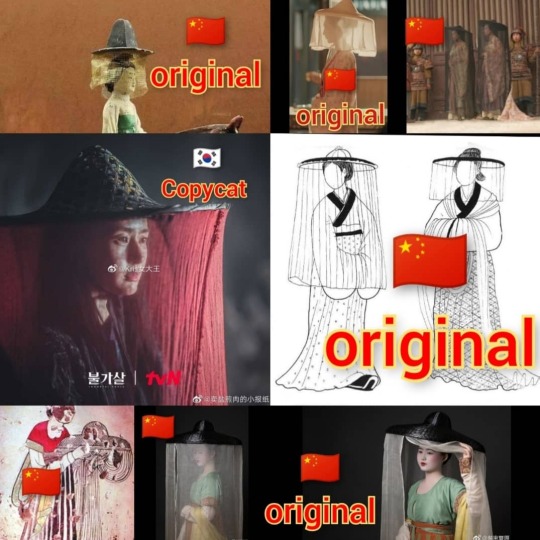
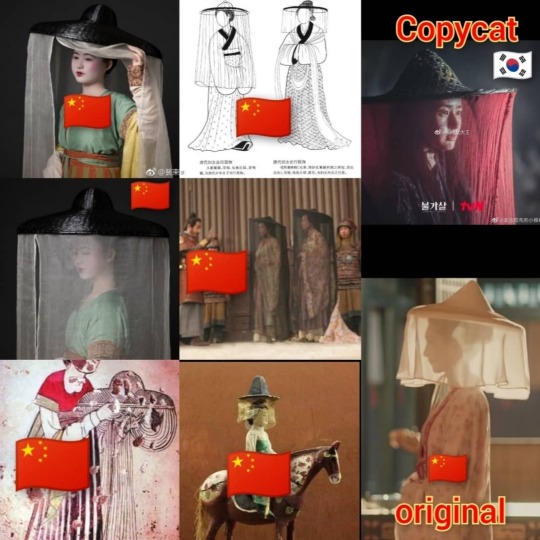
#koreandrama#kdrama#korean#Korea#Kpop#Chinese#China#chineseculture#Cultural appropriation#Copycat#Koreanlies#Thief#netflix
1 note
·
View note